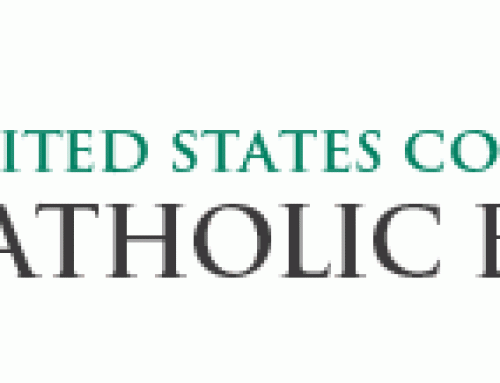Cardinal Joachim Meisner of Cologne, Germany. CNA file photo.

Rome, Italy, Feb 7, 2013 / 12:30 pm (CNA/EWTN News)
.- News stories declaring that Cardinal Meisner will allow the “morning-after” pill for rape victims were the result of his words being manipulated and scientists giving him inaccurate information about the drug, according to a leading physician.
“It seems that the cardinal’s words were manipulated,” Doctor Jose Maria Simon Castellvi told CNA Feb. 7.
“In any case, the morning-after pill works as an anti-implantation product in 70 percent of the cases where the woman is fertile,” said Dr. Simon, president of the World Federation of Catholic Medical Associations.
Cardinal Meisner of Cologne, Germany was drawn into the discussion about the morning-after pill after a story surfaced in the local press about a 25-year-old woman who walked into an emergency room and told the attending physician that she thought she was drugged and possibly sexually assaulted at a party the night before.
The doctor on call, Irmgard Maiworm, said she called two separate Catholic hospitals that were nearby and asked if they would admit the woman. Dr. Maiworm said that both of them refused to admit her, since the prescribed course of treatment would involve using the morning-after pill, known in the U.S. as Plan B.
The German public reacted strongly to reports about the incident, and Cardinal Meisner issued a Jan. 22 apology in which he said it was shameful for a Catholic hospital to refuse treatment to a rape victim.
Cardinal Meisner subsequently met with medical experts about the morning-after pill and they told him the latest research indicated the drug does not have anti-implantation effects.
After that meeting, Cardinal Meisner issued a Jan. 31 statement in which he said that if “a medication that hinders conception is used after a rape with the purpose of avoiding fertilization, then this is acceptable in my view.”
His statement was widely interpreted by the press as giving permission for Catholic hospitals to dispense Plan B to rape victims.
But the study presented to the cardinal was one that was coauthored by Kristina Gemzell-Danielsson, who acknowledges at the end of the paper that she “has served on Medical Advisory Boards of HRA- Pharma and Bayer on matters related to emergency contraception.”
In his remarks to CNA, Dr. Simon also pointed out that the manufacturer of the morning-after pill says the drug may prevent an embryo from implanting on the uterine wall.
“So, we cannot accept it, since even a microscopic human embryo is a person with rights, dignity and a son of God,” he insisted.
The German bishops’ conference will be holding its annual full assembly in two weeks in Trier, Germany and plans to discuss the matter further.
………………………………………………………….
http://www.fiamc.org/bioethics/humanae-vitae/
…………………………………………………………
Dignitas Personae on Caring for Victims of Sexual Assault:
A Commentary on Dignitas Personae, Part Two, n. 23
Marie T. Hilliard, JCL, PhD, R.N., Director of Bioethics and Public Policy
Historically, those subject to the canonical penalty of a latae sententiae excommunication for abortion (Canons 1398, 1321-1324) were the doctor and woman who consented to the surgical procedure, and those who cooperated with it by either causing the abortion to happen (e.g., coercing parent or boyfriend) or making it possible (e.g., the anesthesiologist). With the advent of pharmacological agents which induce non-surgical abortions, in 1988 the Pontifical Council for Legislative Texts clarified that abortion includes the destruction of the embryo or fetus any time after conception. Thus, the health care professionals who prescribe, dispense, or administer interceptives, which interfere with the embryo before implantation (e.g., intrauterine devices and the “morning-after pills”), or contragestatives which eliminate the implanted embryo (e.g., RU-486), also would be subject to canonical penalties if there is certainty that a completed abortion has resulted, and the conditions for such penalties were present.
The use of Plan B or any other “morning after pill” for the purpose of avoiding conception following consensual sex is contraceptive in nature and is rejected by the Church. Many Catholics are surprised to discover that sexual assault is another matter. The issue of sexual assault is not addressed in the new bioethical document, Dignitas Personae<.em>, so sound moral reasoning has to be used to determine which protocol is morally acceptable for the administration of emergency contraceptive drugs. The US Conference of Catholic Bishops’ Ethical and Religious Directives for Catholic Health Care Services (ERD, 2001) state, in part:
A female who has been raped should be able to defend herself against a potential conception from the sexual assault. If, after appropriate testing, there is no evidence that conception has occurred already, she may be treated with medications that would prevent ovulation, sperm capacitation, or fertilization. It is not permissible, however, to initiate or to recommend treatments that have as their purpose or direct effect the removal, destruction, or interference with the implantation of a fertilized ovum. (n. 36)
Thus, it would be moral to administer medications to prevent conception from a sexual assault. The question remains: what protocol would be moral in accomplishing this good, without endangering the life of the potentially conceived embryo?
The primary action of the most available “morning-after pill,” Plan B, (sometimes referred to as emergency contraception, or EC) is anovulatory, that is, it suppresses ovulation—the release of the woman’s ovum. This prevents the engendering of an embryo by the sperm of an unjust aggressor. However, depending on when the medication is administered, Plan B also may prevent the implantation of a conceived embryo in the uterus, thus acting as an interceptive. Dignitas Personae states that “scientific studies indicate that the effect of inhibiting implantation is certainly present, even if this does not mean that such interceptives cause an abortion every time they are used, also because conception does not occur after every act of sexual intercourse.” (N.23)
Some hold that EC may never be administered to a victim of sexual assault, unless one definitively could determine the day of the victim’s reproductive cycle. They cite research indicating that it does not always prevent ovulation, but if administered during or around the time of ovulation, precipitates a disruption in the complex mechanisms of the endometrium, negatively impacting the implantation of any conceived embryo.
Others hold that before the administration of EC all that is morally required is a negative pregnancy test. However, pregnancy test results become accurate only after implantation, about ten to fourteen days after ovulation. A pregnancy test performed within seventy-two hours after the assault (the optimal time period for effective EC administration) cannot indicate whether conception has or will result from the assault. These proponents cite research indicating that EC will not disrupt or harm an implanted embryo, and studies indicating that any effect on the endometrium is insufficient to prevent implantation. However, there does exist credible research to the contrary (Hapangama, et al., Contraception, March 2001; Mikolajczyk and Stanford, Fertility and Sterility, September 2007).
The National Catholic Bioethics Center holds that administration of EC must be consistent with ERD, n. 36—to “prevent ovulation, sperm capacitation, or fertilization.” Current research indicates that the impact of EC on sperm capacitation is not fast enough to prevent fertilization. Therefore, the only reason for which EC morally can be given is to prevent ovulation. The key is to have as much medical certainty as possible that ovulation can be prevented in the particular patient in question. EC alone is unable to prevent ovulation once the surge of luteinizing hormone (LH) stimulates ovulation and the pregnancy test-only protocol does not tell us whether this surge has begun. Adding an ovulation (LH) test to the protocol indicates whether ovulation is occurring or imminent. With a positive ovulation test one may conclude that EC will not prevent ovulation and that conception likely could take place with the potential for the disruption of embryo implantation. Some would go further and argue for a serum progesterone test, which would determine the pre- or post-ovulation day more accurately. However, equipment for such testing is not readily available in many emergency rooms. Furthermore, if undetected “break-through” ovulation does occur, despite the administration of EC in the presence of a negative LH test result, the conditions for the moral administration of EC under the principle of double effect would have been met. Any minimal potential for harm would be an unintended consequence of the legitimate desire to suppress ovulation.








